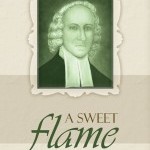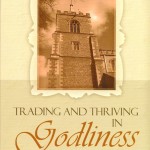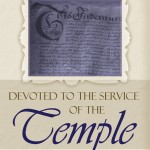A few years ago Joel Beeke and Michael Haykin quietly began editing a series from Reformation Heritage entitled, “Profiles in Reformed Spirituality.” Oh how I wish more people know about this series. Each book is like a stick of dynamite for pastoral piety.
AD FONTES!
In their introduction to the series the editors write,
Charles Dickens’s famous line in A Tale of Two Cities—“It was the best of times, it was the worst of times”— seems well suited to western evangelicalism since the 1960s. On the one hand, these decades have seen much for which to praise God and to rejoice. In His goodness and grace, for instance, Reformed truth is no longer a house under siege. Growing numbers identify themselves theologically with what we hold to be biblical truth, namely, Reformed theology and piety. And yet, as an increasing number of Reformed authors have noted, there are many sectors of the surrounding western evangelicalism that are characterized by great shallowness and a trivialization of the weighty things of God. So much of evangelical worship seems barren. And when it comes to spirituality, there is little evidence of the riches of our heritage as Reformed evangelicals.
As it was at the time of the Reformation, when the watchword was ad fontes—“back to the sources”—so it is now: The way forward is backward. We need to go back to the spiritual heritage of Reformed evangelicalism to find the pathway forward. We cannot live in the past; to attempt to do so would be antiquarianism. But our Reformed forebearers in the faith can teach us much about Christianity, its doctrines, its passions, and its fruit.
SOME WELL-KNOWNS AND LESSER-KNOWNS
One of the series’ greatest assets is how each volume masterfully distills one man’s teaching on and practice of holiness into a bit-size book. In many ways, these titles would be great supplements for morning devotions. There are currently twelve volumes in the series, with more on the way. Here are four titles I’d recommend checking out first; two towering giants of theology and two lesser known, but profoundly gifted pastors.1
 A Sweet Flame: Piety in the Letters of Jonathan Edwards. A Sweet Flame introduces readers to the piety of Jonathan Edwards (1703-1758). Dr. Haykin’s biographical sketch of Edwards captures the importance the New England minister placed on Scripture, family piety, and the church’s reliance upon God. The remainder of the book presents 26 selections from various letters written by Edwards, two written by family members at his death, and an appendix drawing upon Edwards’s last will and the inventor of his estate.
A Sweet Flame: Piety in the Letters of Jonathan Edwards. A Sweet Flame introduces readers to the piety of Jonathan Edwards (1703-1758). Dr. Haykin’s biographical sketch of Edwards captures the importance the New England minister placed on Scripture, family piety, and the church’s reliance upon God. The remainder of the book presents 26 selections from various letters written by Edwards, two written by family members at his death, and an appendix drawing upon Edwards’s last will and the inventor of his estate.
 A Habitual Sight of Him: The Christ-Centered Piety of Thomas Goodwin. Thomas Goodwin (1600–1680) was a faithful pastor, Westminster divine, advisor to Oliver Cromwell, and president of Magdalen College, Oxford. In this book, Joel R. Beeke and Mark Jones acquaint the reader with Goodwin through an informative biographical introduction. The remainder of the book, 35 selections from across the works of Goodwin, displays Goodwin’s constant attention to Christ in his various theological engagements. You will learn much about the life and works of this influential Puritan, and perhaps, be strengthened with a habitual sight of Christ.
A Habitual Sight of Him: The Christ-Centered Piety of Thomas Goodwin. Thomas Goodwin (1600–1680) was a faithful pastor, Westminster divine, advisor to Oliver Cromwell, and president of Magdalen College, Oxford. In this book, Joel R. Beeke and Mark Jones acquaint the reader with Goodwin through an informative biographical introduction. The remainder of the book, 35 selections from across the works of Goodwin, displays Goodwin’s constant attention to Christ in his various theological engagements. You will learn much about the life and works of this influential Puritan, and perhaps, be strengthened with a habitual sight of Christ.
 Trading and Thriving in Godliness: The Piety of George Swinnock. George Swinnock (1627–1673) was a gifted English Puritan, known for his vivid illustrations of biblical truth. In “Trading and Thriving in Godliness”, J. Stephen Yuille highlights Swinnock’s conviction that godliness is the primary employment of every Christian. Yuille’s introductory essay analyzes the influences on, groundwork for, and expressions of piety in Swinnock’s life and thought. The book also contains fifty selections from Swinnock’s writings, exemplify his teaching on the foundation, door, value, pursuit, nature, means, and motives to godliness.
Trading and Thriving in Godliness: The Piety of George Swinnock. George Swinnock (1627–1673) was a gifted English Puritan, known for his vivid illustrations of biblical truth. In “Trading and Thriving in Godliness”, J. Stephen Yuille highlights Swinnock’s conviction that godliness is the primary employment of every Christian. Yuille’s introductory essay analyzes the influences on, groundwork for, and expressions of piety in Swinnock’s life and thought. The book also contains fifty selections from Swinnock’s writings, exemplify his teaching on the foundation, door, value, pursuit, nature, means, and motives to godliness.
 Devoted to the Service of the Temple: Piety, Persecution, and Ministry in the Writings of Hercules Collins. While largely forgotten in modern times, Hercules Collins (1646/1702) was highly influential among the late 17th and early 18th century Calvinistic Baptists of London. Through a biographical sketch and 35 sample selections collected from Collin’s writings, Michael A.G. Haykin and Stee Weaver introduce us to the vibrant spirituality of this colossal figure.
Devoted to the Service of the Temple: Piety, Persecution, and Ministry in the Writings of Hercules Collins. While largely forgotten in modern times, Hercules Collins (1646/1702) was highly influential among the late 17th and early 18th century Calvinistic Baptists of London. Through a biographical sketch and 35 sample selections collected from Collin’s writings, Michael A.G. Haykin and Stee Weaver introduce us to the vibrant spirituality of this colossal figure.
Click here to see previous entries in the “A Series Worth Serious Investment” series.
- Book descriptions taken from the publisher. ↩

